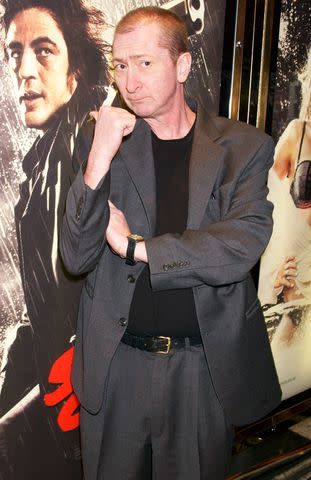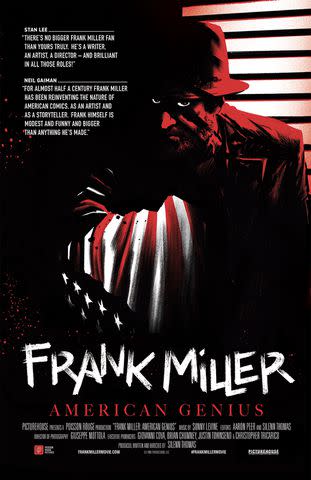“Sin City” Creator Frank Miller Calls His Past Struggle with Addiction 'a Very Boring Dance with Death'
"I had a watch on my wrist and the main purpose it served me was to tell me when the bars were open," the comic book artist says in the documentary 'Frank Miller: American Genius'

AFP and Joel Saget
Frank Miller in 2024.Frank Miller is getting candid about his experience with alcoholism.
In the upcoming documentary Frank Miller: American Genius, premiering for one night only in Cinemark theaters on Monday, June 10, the legendary comic book artist opens up about his struggle with addiction around the time of the 2014 premiere of Sin City: A Dame to Kill For.
"My addiction was a dance with death, but it was a very boring dance with death because it was the same moves over and over again," Miller, 67, says in the movie. "They knew me at the local saloons. I went through the same ritual every morning. I had a watch on my wrist and the main purpose it served me was to tell me when the bars were open."

Dave Benett/Getty
Frank Miller arrives at the UK premiere of "Sin City" in 2005.The artist's work on paper has left a major mark on popular culture. He has penned graphic novels such as Daredevil: Born Again, The Dark Knight Returns, Sin City and 300, which have gone on to have screen legacies. He also wrote the script for 1990s sci-fi movies RoboCop 2 and Robocop 3.
In the documentary, Miller, who wrote and co-directed Sin City and its sequel, reflects on how alcohol abuse impacted him artistically, saying it drew him away from drawing and towards writing due to its affect on his motor skills.
"I realized I could make a good living just writing, and writing somehow flows much more easily in a drunken state," Miller says.
Soon he found that the depressant drug "turned bad" on him.
"Pretty soon, the writing doesn’t happen or you continue to do it but it's not very good. There was a fragmentation that happens, much like the fragmentation of the mind, where the lines don't hold together as well and the images aren't as simple or as coherent," he explains.

Poisson Rouge Pictures
The 'Frank Miller: American Genius' Poster.Miller says he was living in a "constant state of fear" and was "out of control."
"From time to time, I'd know I was killing myself, and I wanted to obliterate that feeling the only way I knew how, which was to take the voice that I was killing myself with. It's not rational. I was not rational. It was with me, the way the disease works. I was committing slow suicide. In fact it turned into fast suicide," he says.
Reflecting on the other side of the battle, Miller says, "Clarity is quite beautiful. It is quite useful. The control of one's faculties is nothing but beautiful. My biggest feeling about addiction is it is a rather sickening sense of wasted time."
Over the course of his career, Miller has collaborated with Robert Rodriguez, Jessica Alba and Zack Snyder, all of whom appear in the documentary.
The synopsis for the movie reads, "Frank Miller: American Genius documents the unique journey of an unparalleled American artist. The film explores the near half-century career of the legendary comic book artist and writer."
It continues: "Made for his fans following a near-death experience, the documentary delves into Miller’s radical and defining influence on art, storytelling and culture. Following his small-town beginnings in Vermont, to New York City, Hollywood, and beyond; this intimate documentary delves into his failures, successes, self-destruction and re-discovery."
If you or someone you know is considering suicide, please contact the National Suicide Prevention Lifeline at 1-800-273-TALK (8255), text "STRENGTH" to the Crisis Text Line at 741-741 or go to suicidepreventionlifeline.org.
For more People news, make sure to sign up for our newsletter!
Read the original article on People.


